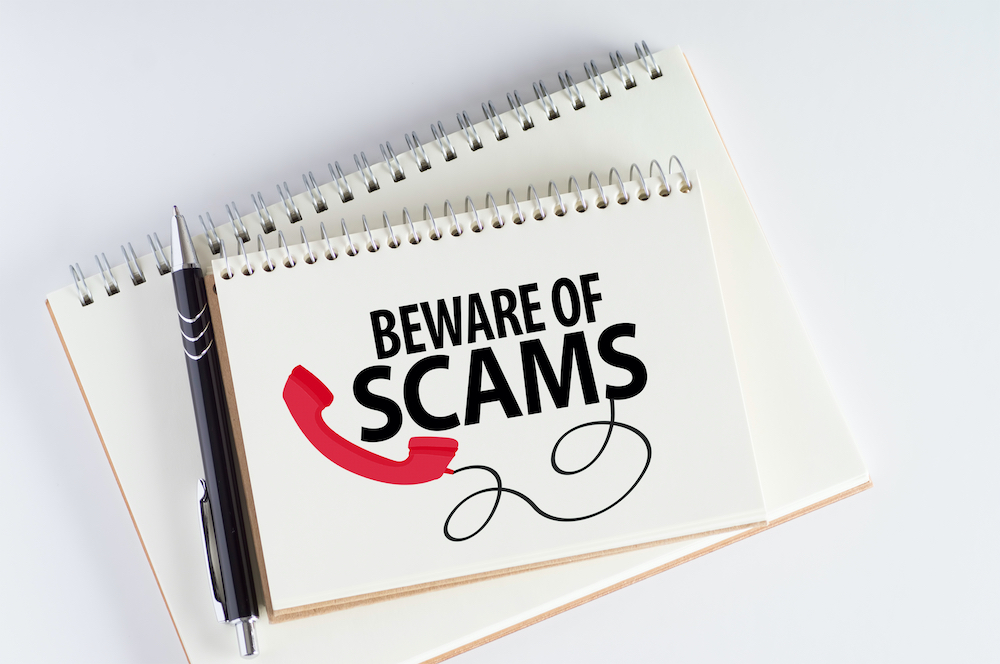Opportunistic criminals will go to any length to scam unsuspecting members of the public. Every industry has its share of scams. In this post, we’ll explore some of the common car insurance scams. We’ll examine the sort of techniques scammers use, and let you know what sort of red flags to look out for.

What is Ghost Broking?
Ghost broking is one of the most common forms of car insurance scams, and it’s on the rise: Action Fraud reported a 10% increase in cases from 2019 to 2020. So what is ghost broking? It’s where fake insurance agents sell insurance policies that are technically worthless.
In some cases, the policies don’t even exist. People hand over money thinking they are fully-insured. But their policy’s fake, so they’re unknowingly driving uninsured. This, of course, is illegal, and comes with high penalties.
Other ghost brokers claim to have inside links with real insurance companies. They claim that they can act on your behalf to get you a better deal. But what they actually do is submit false details to lower the cost of your premium. Again, this is highly illegal. And in some reported cases of ghost broking, the fake insurers end up charging their victims more than they initially quoted anyway. You can find out more on the Action Fraud website – the National Fraud and Cyber Crime Reporting Centre.
It seems that ghost brokers rely on people not understanding how car insurance works, a particular risk for new drivers with little experience in buying car insurance. They may also depend on their victims being too frightened of being convicted for fraud once they realised that they’ve been scammed.
Are You At Risk of Ghost Brokers?
Ghost brokers generally target people with limited budgets who might regardless have to pay a lot for their car insurance. This includes young drivers, who may pay more for their car insurance than older more experienced drivers.
Ghost brokers might also target people for whom English is a second language. They might also target poorer areas of the country, or areas where car insurance premiums are higher than other areas.
Ghost brokers rely on the internet to target their victims. They might run adverts promising cheaper car insurance with prices quoted seemingly too good to be true. And of course, that’s because they are.
How to Spot the Signs of a Ghost Broker
There are a few things you can do to safeguard against ghost brokers.
- As a general rule of thumb, remember that if something seems too good to be true, it probably is. Do your research, never take anything at face value, and never sign up for anything if you have any doubts.
- Be your own broker. Look for reviews, and use sites like Money Supermarket, Compare the Market and Money Saving Expert to find your own car insurance deals and visit insurance sites like Go Girl directly.
- A major red flag: Ghost brokers may ask you to pay money into a personal bank account. A real insurer will never do this.
- Reputable insurers register with the FSA and the ABI. So you can clear all doubts about any potential insurer with a quick search on either site.
It’s also worth learning more about car insurance – what it covers and how it works. And once you do this, you’ll find out that there are other, safer ways to get cheaper car insurance.
Other Car Insurance Scams
What is Crash for Cash?
Some fraudsters intentionally crash into other cars before submitting an insurance claim. They often exaggerate the claim in order to get as much of a pay-out as possible. Not only is this highly dangerous, it’s also very hard to safeguard yourself against this sort of car insurance scam.
What is Flash for Cash?
Like a crash for cash scam, but a little more insidious. Scammers will flash to let a car pass, before emerging from a junction anyway, resulting in a crash and, of course, an insurance claim. Again, it’s very difficult to safeguard yourself against this type of scam. Though you could read more about the laws for when you can flash your headlights, which might help you spot a potentially fraudulent situation.
Crash Fraud Car Insurance Scams – Are There Any Warning Signs?
Though it’s very hard to protect yourself against crash fraud, you might still be able to spot potential warning signs, if you know what to look out for:
- Is the car driving erratically? The car in front might be speeding up and slowing down for no good reason. If so, they might just be a bad driver. Or they might be trying to catch you off guard, to make you crash into the back of them.
- Does the car have signs of damage? There might be dents, bumps and scratches on the back of the car. This might suggest that they’re seasoned crash fraudsters. Some scammers also disable their brake lights completely, to make it more likely that you’ll crash into the back of them.
- Are there people in the passenger seats who appear to be paying close attention to you? Some scammers work in groups. One person will drive the car, another will monitor the road behind, looking out for a good opportunity to slam on the brakes and cause an accident.
These are subtle warning signs indeed – the sort of thing that many motorists might not even know to look out for. So if you want to protect yourself against car insurance scams:
- Keep your distance from the car in front. That way, if they suddenly stop, you’ll have enough time and space to stop too.
- Consider getting a dash cam. That way, if you feel you’ve been scammed, you’ll have evidence to back up your claim.
Get comprehensive car insurance to ensure that, no matter what happens on the roads, at least everything will be covered if you’re involved in an



